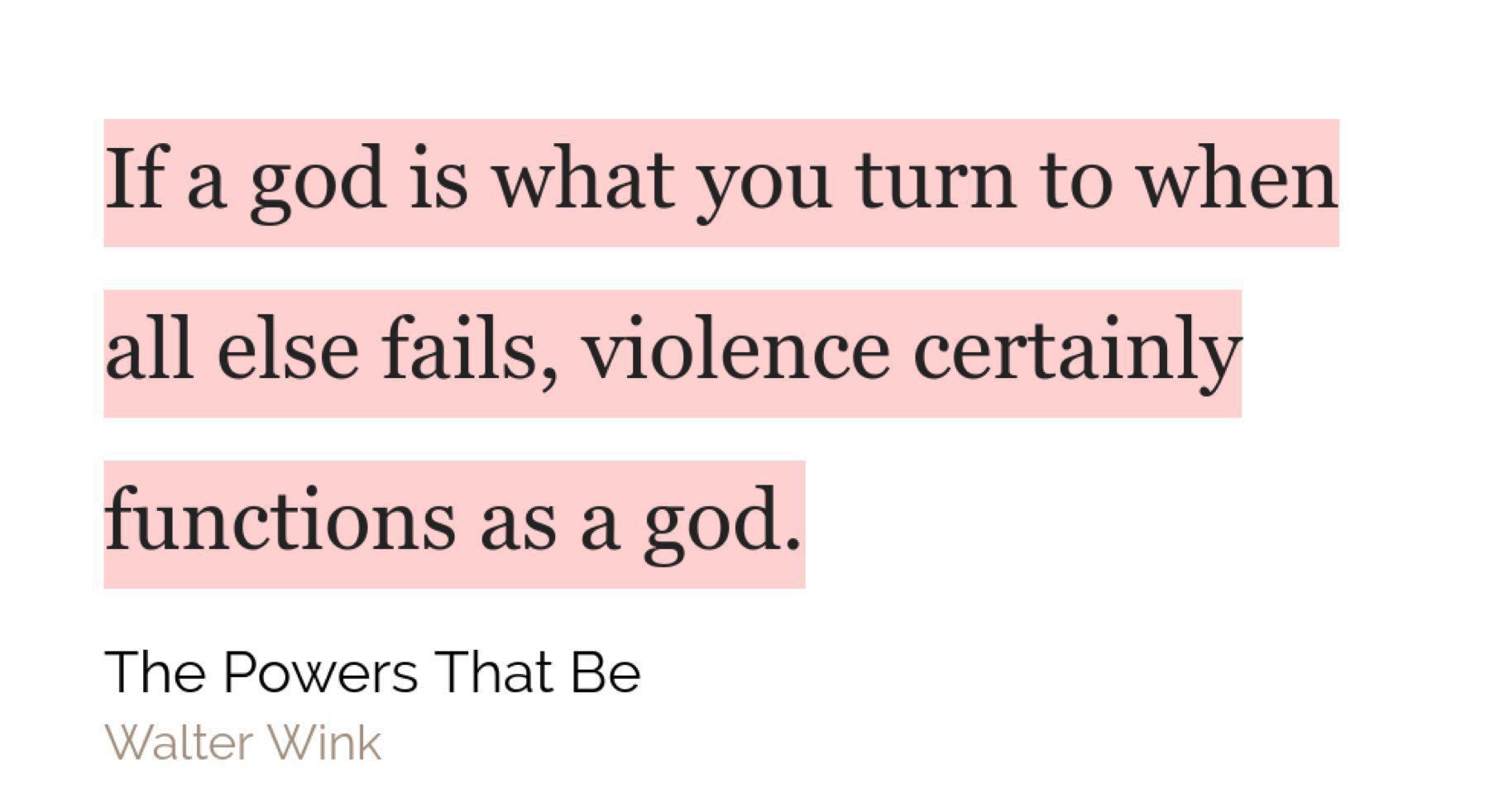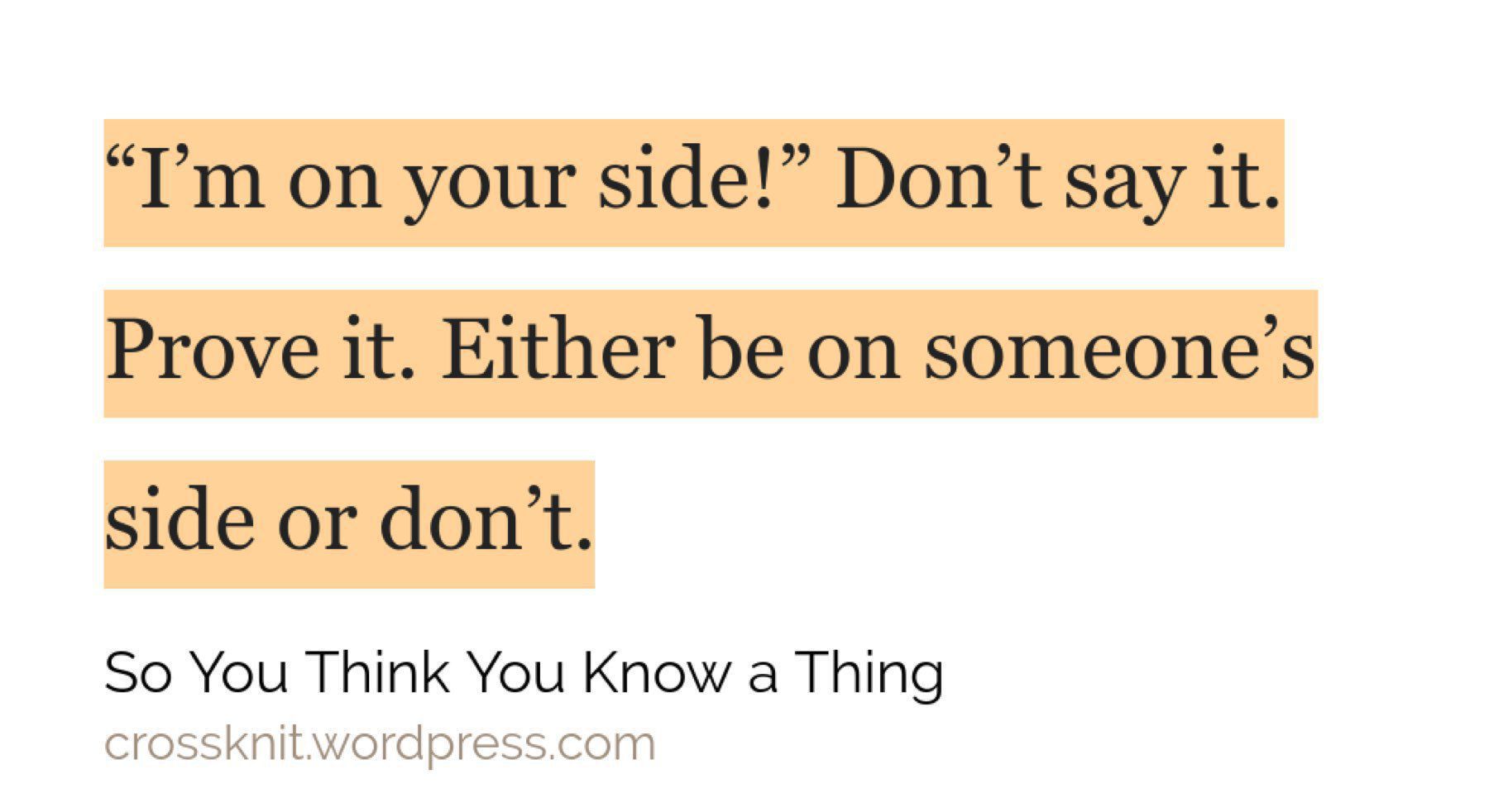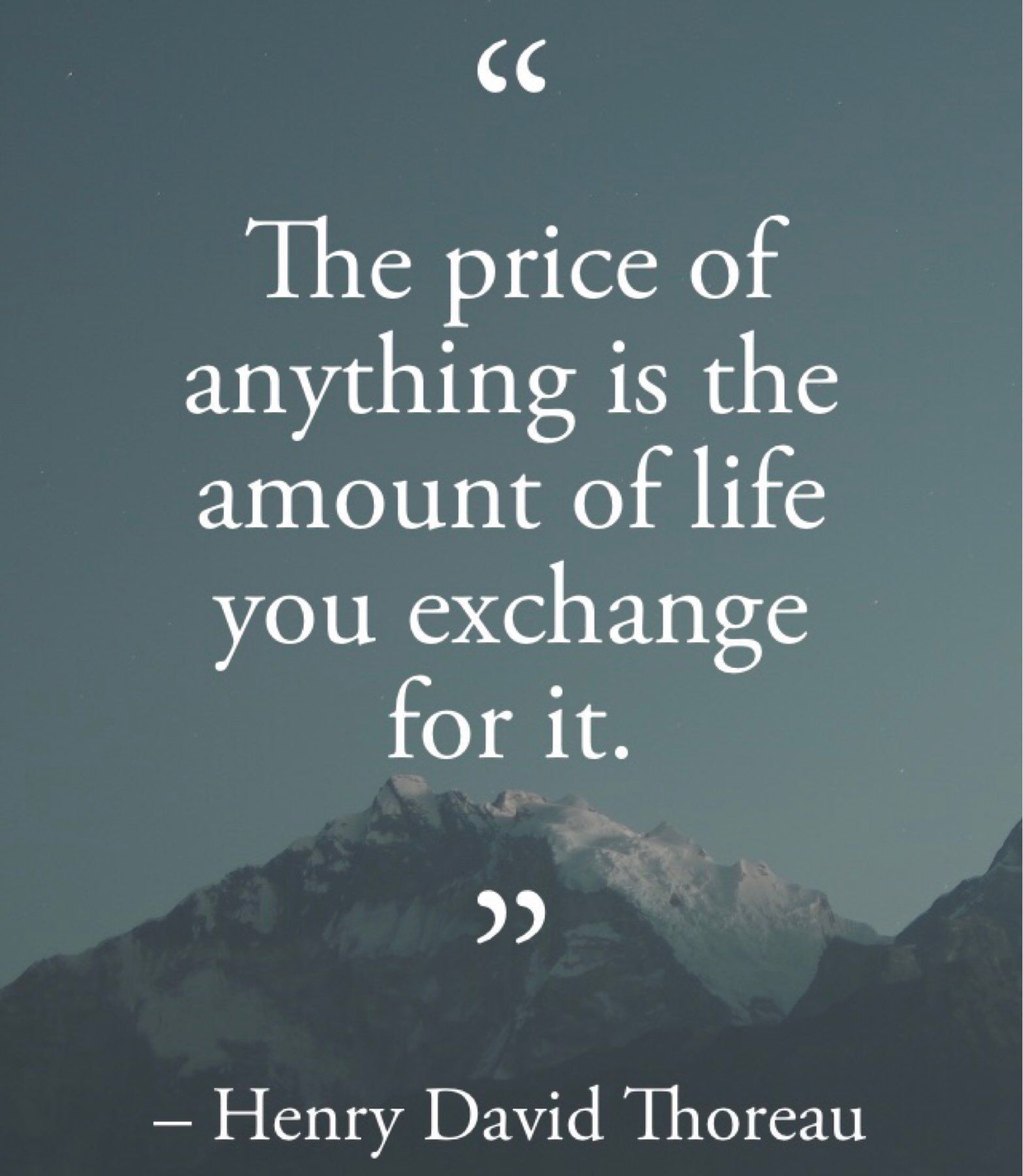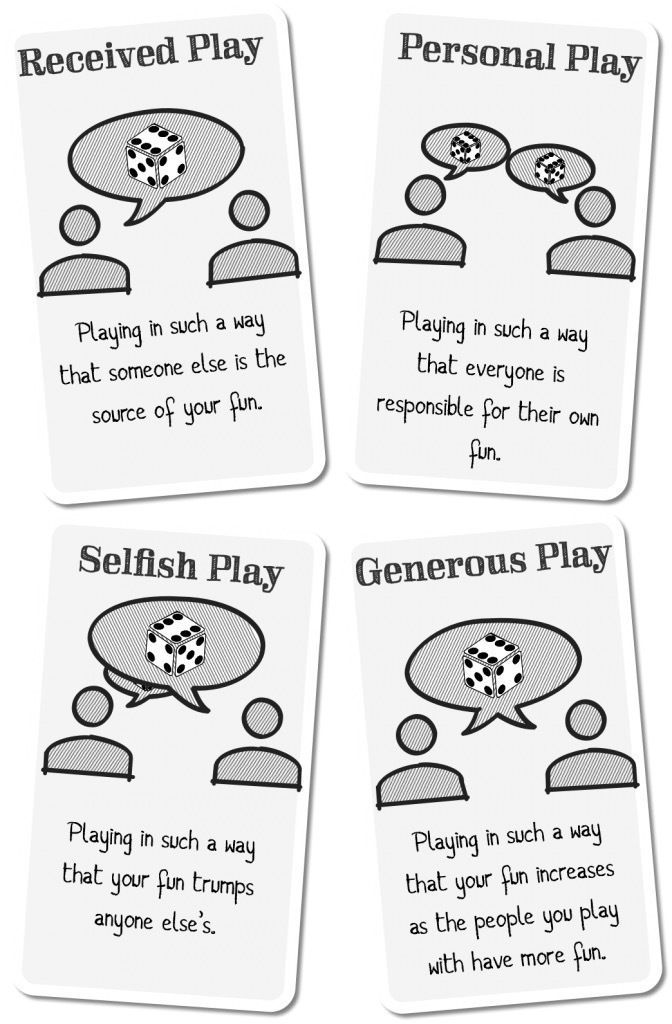Ideas
- Clutter is costly
- Optimization is important
- Intentionality is satisfying
- Serve something you deeply value
- Be the best way to use technology to serve this value
- Have a role in your life that is constrained with a standard operating procedure that specifies how you use it
- Prioritize demanding activity over passive consumption
- Use skills to produce valuable things in the physical world
- Seek activities that require real-world, structured social interactions
- Anabaptism - Anabatism, Mennonites, and faith from those perspectives (RSS Feed)
- Digital Minimalism - intentionality around use of tech (RSS Feed)
- Games - a broad category for card games, board games, role-playing games, party games, live action games, and video games (RSS Feed)
- Humor - satire, comics, etc. (RSS feed)
- Ideas - food for thought, strategy, politics, philosophy, theology, psychology, etc. (RSS feed)
- Resilience - information/cybersecurity, sustainability, emotional & psychological resilience, posts from my Newsletter/Podcast (RSS feed)
- Review - year-in-review, looks back, but also comments on books, tools, video, music, events, etc. (RSS feed)
- Soccer - maybe I should just make this “sports”, but I really only share about Soccer (core teams: Indy Eleven, US Women’s & Mens’s national teams, Chelsea FC) (RSS feed)
I’d love to hear your thoughts on this Global Youth Learning Framework from Institute for the Future. #Resilience #Learning
This episode of the Knowledge Project has even more great parenting and development insights than the last one I shared.
Excellent episode of the Knowledge Project: Peaceful Parenting. I’m not a parent and I still got a ton out of it.
Accurate: Life Online

Digital Minimalism: Reference and Review
Digital Minimalism: Choosing a Focused Life in a Noisy World by Cal Newport ⭐️⭐️⭐️⭐️
(Note: I wrote about my own experience with Digital Declutter here.)
Premise
You’ve probably already heard: billions of dollars are spent on psychology and technology to claim as much of your attention as possible, to sell as much advertisement possible. The addictiveness of sites, apps, and phones is not an accident, but rather a result carefully engineered to be just so.
In addition, “darker emotions attract more eyeballs than positive and constructive thoughts”, so we are pushed towards outrage, anxiety, and despair.
Various attempts have been made to lessen the negative side effects and addictive properties of modern attention-economy technologies, but they’ve largely been unsustainable.
What to do? Newport Recommends Digital Minimalism.
Manifesto
Digital Minimalism - A philosophy of technology use in which you focus your online time on a small number of carefully selected and optimized activities that strongly support the things you value, and then happily miss out on everything else.
Digital Minimalism includes avoiding “low-value activities that can clutter up [our] time and attention and end up hurting more than they help.” It also means asking ourselves “is this the best way to use technology to support this value?” The law of diminishing returns also applies, here.
The Principles
Summary quote from this section:
The sugar high of convenience is fleeting and the sting of missing out dulls rapidly, but the meaningful glow that comes from taking charge of what claims your time and attention is something that persists.
Digital Declutter Program
Newport recommends an intentional process to reassess your needs and values.
Put aside a thirty-day period during which you will take a break from optional technologies in your life. During this thirty-day break, explore and rediscover activities and behaviors that you find satisfying and meaningful. At the end of the break, reintroduce optional technologies into your life, starting from a blank slate. For each technology you reintroduce, determine what value it serves in your life and how specifically you will use it so as to maximize this value.
Taking the Break:
Evaluating “optional” can be grey, but Newport gives this guideline:
consider the technology optional unless its temporary removal would harm or significantly disrupt the daily operation of your professional or personal life.
Newport also warns us to not confuse “convenient” with “critical”, when analyzing our needs during this period.
Two methods to “take a break” are bans and operating procedures. A ban is simply not using that site, tech, app, etc. during the period. Operating procedures entail using it under certain rules. For example, many test participants in the program moved many tasks to their laptop/desktop that they had often completed on their phones, or checked certain apps/sites only once a week, or during a certain window, or in a certain place.
In summary:
In the end, you’re left with a list of banned technologies along with relevant operating procedures. Write this down and put it somewhere where you’ll see it every day.
Reintroducing Technologies
To be reintroduced, a technology must:
For the last item, this means asking “How am I going to use this technology…to maximize its value and minimize its harms?”
Practices
One of the side effects of the engineered attention economy is that we’ve become accustomed to distract ourselves at the slightest moment of boredom or uncomfortable introspection. In addition, cutting out mindless swiping and browsing will introduce a lot of free time. If we don’t have a plan to proactively use our freed time, our Digital Minimalism practice is likely to fail.
Thus, Newport introduces some possible practices to help us positively spend some time with our own thoughts, reclaim our free time as quality leisure, and further join the “Attention Resistance.”
During your tech break and again in your reintroduction, see which of these would be good to include in your habits.
Practice Area: Spend Time Alone
One of the challenges of the attention economy is that we are frequently stuck in:
Solitude Deprivation: A state in which you spend close to zero time alone with your own thoughts and free from input from other minds
Time with our own thoughts is important, in short, for mindfulness. It’s important for the ability to consider problems, to examine & regulate emotions, reflect on values, and more.
Newport refers to the mounting evidence regarding how the attention-economy is drastically driving up anxiety levels. As I mentioned at the beginning, we know our negative emotions are targeted for reaction, but on top of that we are also repeatedly presented with “curated” versions of others’ selves, and finally, the systems are designed for us to continually seek the repeated micro-approvals of others. The attention economy is engineered in a way that drives anxiety.
Thus, the following practices help us have time without input from “other minds”, to help restore some control, attention, and mindfulness to our lives.
Through these practices, Newport recommends:
Conversation Centric Communication: Conversation is the only form of interaction that in some sense counts toward maintaining a relationship….Anything textual or non-interactive—basically, all social media, email, text, and instant messaging—doesn’t count as conversation and should instead be categorized as mere connection. In this philosophy, connection is downgraded to a logistical role. This form of interaction now has two goals: to help set up and arrange conversation, or to efficiently transfer practical information…. Connection is no longer an alternative to conversation; it’s instead its supporter.
On to the practices:
Practice: Leave Your Phone at Home
It may feel impossible, but this is a very recent feeling. If you’re concerned about emergencies, consider leaving it off, or in the glovebox of your car, for example. (Again, this is implementing operating procedures.)
Practice: Take Long Walks
By yourself. Without your phone.
Practice: Write Letters to Yourself
AKA write in notebooks. Take notes, journal, brainstorm, plan.
Practice: Don’t Click “Like”
“No reacts plz”, we might say. This goes back to the micro-approvals and anxiety I mentioned above, as they drive the slot-machine behavior of social media sites. If you must react, share a comment. Or your own writing. Or even better, have a conversation with the person. “Adopt the baseline rule that you’ll no longer use social media as a tool for low-quality relationship nudges.”
Practice: Consolidate Texting
Keep your phone in Do Not Disturb and only check according to an operating procedure. Setup your DND to allow calls through from critical contacts.
Practice: Hold Conversation Office Hours
Pick a time when you are open for free conversation. Maybe it’s your commute. Maybe it’s literally open office hours. Maybe it’s a recurring walk. Whatever it is, offer this time as an opportunity for conversations.
Practice Area: Reclaim Leisure
All this freed time can lead to existential anxiety or produce negative behaviors (mindless consumption, alcohol/drug abuse, etc.) to fill the void. Newport claims giving more thought, attention, and effort to our leisure will make it more fulfilling and restorative, and help us keep on the Digital Minimalism path.
Here are the three principles, then, of leisure:
“The value of the pursuit is often proportional to the energy invested.”
Practice: Fix Or Build Something Every Week
Per principle #2, this should be analog. Newport recommends trying to learn and apply a skill each week over Digital Declutter period.
Practice: Schedule Your Low-Quality Leisure
Per your operating procedures, you should decide when, how much, how, etc. For example, maybe you only stream TV with family and friends, and only for X hours on the weekends. Maybe you only check in on Facebook events, groups, and family pictures for an hour on the weekends. In Newport’s findings, “the vast majority of regular social media users can receive the vast majority of the value these services provide their life in as little as twenty to forty minutes of use per week”, as opposed to the 3+ hours that the average person spends daily on their smartphones.
Practice: Join Something
Join a club, meetup, organization, etc. Or start your own!
Practice: Follow Leisure Plans
This may sound backwards, but actually planning your leisure may give you more opportunities to do it, by prioritizing it in your schedule.
Newport recommends a seasonal plan and weekly planning.
A good seasonal plan contains two different types of items: objectives and habits that you intend to honor in the upcoming season. The objectives describe specific goals you hope to accomplish, with accompanying strategies for how you will accomplish them. The habits describe behavior rules you hope to stick with throughout the season.
For each of the objectives in the seasonal plan, figure out what actions you can do during the week to make progress on these objectives, and then, crucially, schedule exactly when you’ll do these things.
Practice Area: Join the Attention Resistance
At this point in history, “extracting eyeball minutes, the key resource for companies like Google and Facebook, has become significantly more lucrative than extracting oil.”
Practice: Delete Social media from Your Phone
Once you have your operating procedures around use, you probably don’t need it there, anyway.
Practice: Turn Your Devices Into Single-Purpose Computers
This is about focus and not multi-tasking. Of course computers are general purpose machines, but “the power of a general-purpose computer is in the total number of things it enables the user to do, not the total number of things it enables the user to do simultaneously.”
Practice: Use Social Media Like a Professional
People who work with Social Media for their job typically have operating procedures to be effective.
Have a careful plan for how you use the different platforms, with the goal of “maximizing good information and cutting out the waste.”
For example, fix the signal-to-noise ratio by being careful about what and who you follow.
Practice: Embrace Slow Media
Slow Media or Slow News is like the Slow Food or Slow Church movement. Embrace the patient, high-quality, well-considered sources and conversations.
Avoid junk and reactivity. Avoid “Breaking News”, which is almost always low-quality, error-prone, and often emotionally manipulative.
Seek opposing viewpoints. Follow feeds from good writers. Save/bunch stories to read once a week.
Practice: Dumb Down Your Smartphone
Consider a dumbphone, no phone, or something like the Light Phone or the Punkt Phone.
Conclusion
I liked this book and look forward to implementing my break and examination during Lent. Want to discuss the book? Message me and let’s have a conversation!
First change I’m making due to Digital Minimalism: going through my many Slack instances this morning and leaving all the channels that don’t have needed info for me, and are instead just chatty rooms. #DigitalMinimalism
Start with Why micro notes/review

Reminder: people who behave terribly online probably behave terribly terrible offscreen, too. It’s the same person and online is still real life.
“Solitude Deprivation: A state in which you spend close to zero time alone with your own thoughts and free from input from other minds.”
from Digital Minimalism: Choosing a Focused Life in a Noisy World
If a god is what you turn to when all else fails, violence certainly functions as a god.

I don’t mind stealing bread
from the mouths of decadence.
But I can’t feed on the powerless
when my cup’s already overfilled.
"Drama"
It’s definitely a warning sign when I hear someone complain about “drama". The usage of “drama” is generally to complain about people upsetting the status quo, from their privileged position of not having to worry as much about social considerations.
Consider this distinction:
‘When something awful happens to you or someone you care about: it’s trauma. But when something awful happens to someone about whom you don’t care: it’s drama.’
From here
Just added to Security Thinking for Big Data: the Algorithmic Justice League.
Great episode of Freakonomics Radio. Interview with Domonique Foxworth about sports, economics, labor, and more.
Introducing Blog Categories and Specific Feeds!
Good news! Per this announcement, Micro.blog now supports categories, and therefore, so does this blog.
Categories allow you to view or subscribe to a selection of blog posts related to a certain theme. My collections could evolve over time, but you can always see the live list at the top of my archive page. I created the following breakdown, which most of my posts will fit into:
Questions? Comments?
Today’s quote for reflection.

Had a team member say that they really would prefer a team lunch instead of team dinner, because they had events with their kids in the evening. I thanked them for being open about that with me. Good reminder that how we do social events can be excluding, if we’re not careful.
On this MLKJ day, as usual, I ask that white people avoid posting light pithy quotes, and instead dig deeper in his message. Letter from a Birmingham Jail is a great place to start.
This morning’s reflection from #BuJo. What does this mean in the #AttentionEconomy ?

